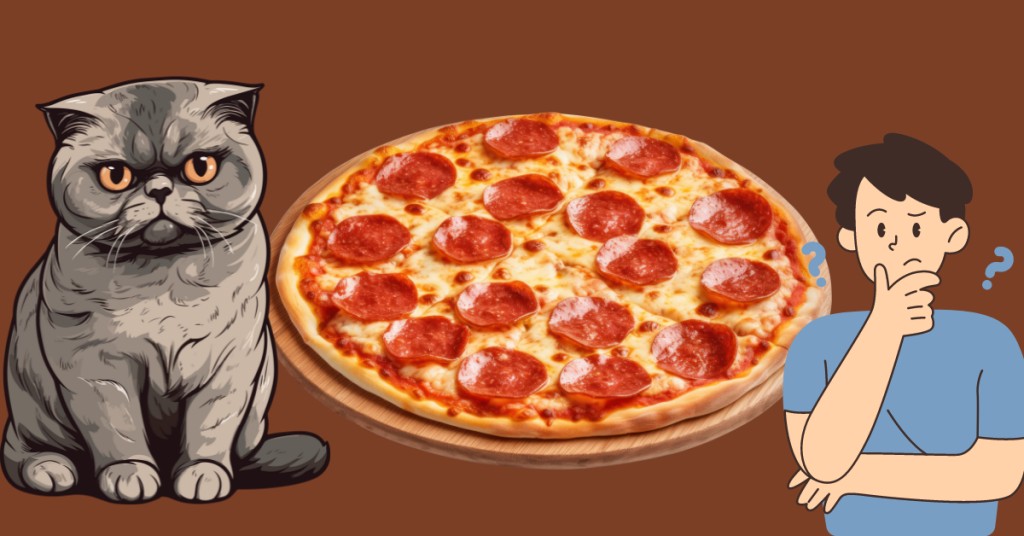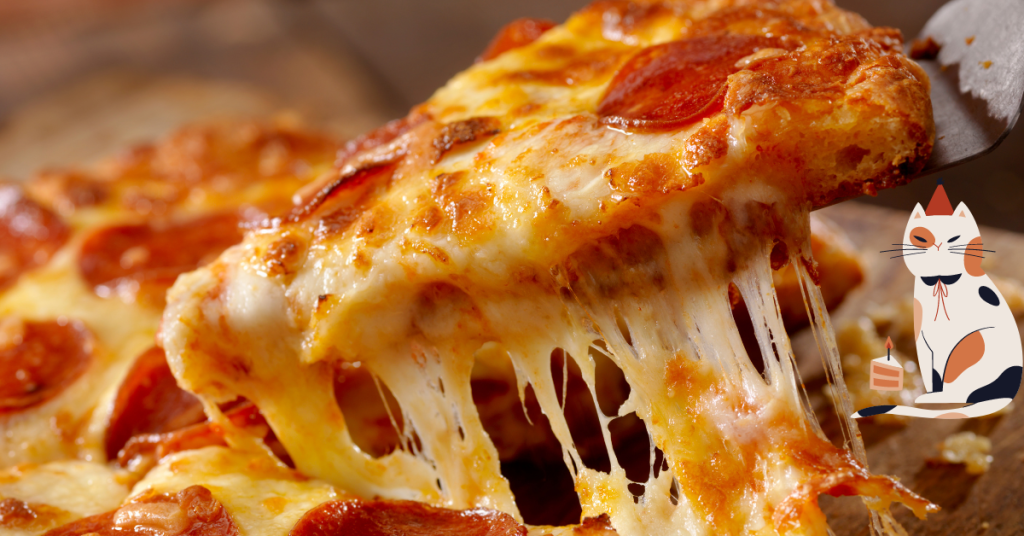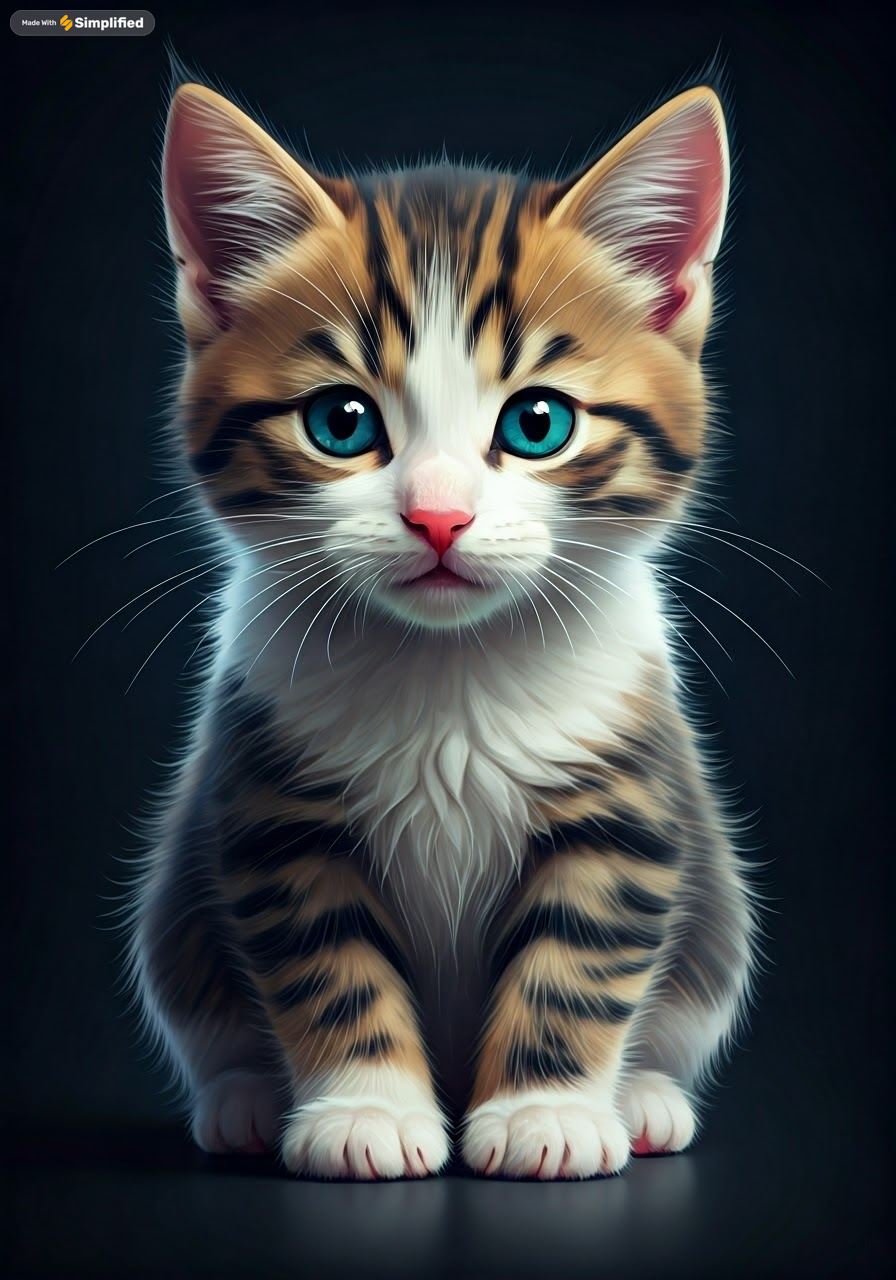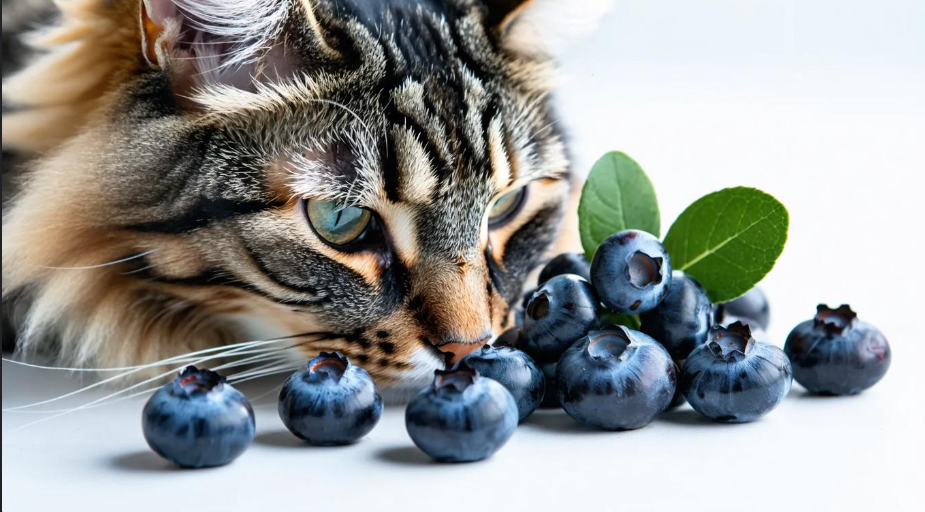I don’t know if any of your USA friends told you this. The connections people have with their feline pets are unique and precious. As concerned cat owners, we must take care of the health of our animals. As a cat owner, you should be cautious about the meals you give them. Your main concern is that can cats eat pepperoni.
Pepperoni, a popular meat product often seen on pizzas and sandwiches, stands out as a subject of attention among all the foods consumed by humans. Can cats eat pepperoni pizza? Are you wondering if it’s safe to give your cat some pepperoni? Although pepperoni seems like a harmless treat, it might not be so good for your feline friend. In this article, you will look into the potential risks of cats consuming pepperoni.
For cats, pepperoni is edible. They feel safe there. But make sure they only eat it occasionally. When they consume too much pepperoni, they may get sick or even poisoned.
In this article, you will find the answer to your question can my cat eat pepperoni also explore the dangers of feeding pepperoni to your cats in great detail, along with advice on safe sharing. You have to read this article through to the end to figure out the answer to your question of whether can cats eat pepperoni.
Table of Contents
Understanding of Cat’s Diet
Cats are classified as obligate carnivores. Their need for certain vitamins, like vitamin A, and essential amino acids, like taurine and arginine, is what stimulates this biological demand.
These nutrients are essential to their overall health, growth, and the preservation of critical physiological processes. Taurine deficiency, for instance, can result in major health problems like heart problems and vision impairments.
Treats can be a fun addition, but to avoid nutritional imbalances, they should only be given occasionally. A veterinarian’s suggestions are crucial to modify a cat’s diet to fit its age, health, and lifestyle and make sure your furry friend is happy and healthy.
What Is Pepperoni? What Does it Contain?
Can cats eat pepperoni? While not all pepperonis are created equally, the majority do share some similarities. The general recipe remains largely the same, though the precise proportions of meats, spices, and preservatives may vary slightly.
Protein
A dried meat product primarily composed of beef and pork is called pepperoni. A product with this composition has a very high protein content. 75–85% of commercial pepperoni products are made of protein. Pepperoni contains a high protein that is significantly more than what a cat should consume daily.
Salt
Salt is one of the main flavoring components of pepperoni. The pepperoni needs salt to be tasty and enticing to cats as well as humans. NaCl is the chemical formula for salt. Sodium, or Na, is a chemical that should be taken into account when giving pepperoni to a cat.
A human-sized serving of pepperoni has a lot of sodium, but when you feed it to a housecat, the amount of sodium increases significantly.
Spices
Spice is the main ingredient that adds flavor to meat. To add flavor, spices are combined with the dried pork and beef. Ground mustard, paprika, black pepper, red pepper, garlic, and fennel are among the spices frequently used in pepperoni.
The sensitive digestive system of a cat can suffer greatly from all of these spices. Excessive consumption of spicy pepperoni may cause vomiting, bloating, diarrhea, pain, and stomach cramps in cats.
Possible Dangers of Giving Cats Pepperoni
For several reasons, pepperoni is not the best treat for cats. Common in cured meats, the high salt content can cause problems like excessive thirst, frequent urination, and, in extreme situations, sodium ion poisoning. Can cats eat pepperoni? is one of our article’s main concerns. A cat’s digestive system may not be able to handle the rich fat content of pepperoni, which could result in pancreatitis or obesity.
Is it Safe to Feed Pepperoni to Cats?
It is less likely that a few pepperoni bites will have a significant effect on your cat. Cats become more likely to eat pepperoni when they start doing so frequently. Can cats eat Pepperoni is a big concern for the cat owners. Once more, cats are not poisoned by small amounts of pepperoni, but you also shouldn’t voluntarily feed them this food.
Your cat fiercely requests some of the pepperonis you eat, but is sharing a sensible decision?
The dose determines the danger when it comes to pepperoni. This is a meat product, yes. But it’s not like any natural meat product or cat food that your pet would normally eat. When cats eat pepperoni, there are major health risks.
It is estimated that an ounce of pepperoni contains 12.2 grams of fat. For a 9-pound adult cat, the recommended daily fat intake is roughly 5.5 grams. A cat’s daily fat requirements are doubled by an ounce of pepperoni, so the extra fat in the food can cause upset stomachs and unforeseen weight gain.
Sodium is your next main concern. The typical cat consumes 42 milligrams of salt per day, which is not an excessive amount.
An excessive amount of salt can have toxic effects that cause a range of symptoms, including vomiting and seizures. Approximately 475.9 milligrams of sodium, or more than 11 times the recommended amount, is present in a single serving of pepperoni.

Food Allergies in Cats
Similar to people, cats can have different food sensitivity levels. Cat’s health is a big concern for a cat owner and a major concerning question is whether can cats eat Pepperoni? Because pepperoni contains a variety of spices and seasonings, some cats may experience allergic reactions. Common signs of food allergies include skin and coat problems like itching or inflammation, as well as digestive disturbances like vomiting or diarrhea.
Indeed, allergies to food ingredients do occur in cats. Cats rarely have these food allergies, though. Allergies to grasses and mold in their surroundings are much more common in them. When a cat’s immune system overreacts to a food ingredient it has previously been exposed to, it can result in a food allergy.
Even if a cat has been eating the same food for a long time, food allergies can develop at any age. The majority of recognized food allergies result from an unusual response to food proteins. These are a few common foods that trigger allergies, but cats can have allergies to any food, not just the ones. Cat’s food allergies are most frequently caused by the following foods beef, fish, and chicken.
Moderation and Control of Portion
Can cats eat pepperoni? Pepperoni should be added to a cat’s diet with caution, but moderation and portion control can be important considerations. Make sure it’s free of excess salt, spices, and additives if you plan to share a small piece as a treat from time to time. Recall that a little goes a long way and that it’s crucial to regularly check for any negative reactions.
Best Treats For Cats
Nutrition
Cat treats should not account for more than 10% of your pet’s daily caloric intake; rather, they should be used as a supplement to their regular diet. How many treats you can give your cat each day will depend on how many calories each one has.
If your cat is overweight, it’s usually best to choose a low-calorie option. Certain treats for cats can also help with other health issues like reducing tartar or controlling hairballs. Seek for cat treats made with chicken, turkey beef, or fish, or any other high-quality protein source.
Texture and Flavour
There are many different textures of cat treats, such as formulas that are crunchy, soft, and lickable. It might take some trial and error to determine your cat’s favorite texture. Similar to this, a lot of cat treats come in a variety of flavors, like beef, chicken, salmon, or tuna, and your cat might have a preference for one over the other.
Lean, well-cooked meats without seasoning, such as turkey or chicken, can be served occasionally as treats as long as they are cooked through to prevent bacterial growth.
Pepperoni Substitutes for Your Cat
Because of its high fat, protein, and salt content, along with the spices and preservatives it contains, pepperoni is not the best snack for cats, even though it is not toxic. Even though cats are sometimes pickier than dogs, there are still plenty of safe foods in your house that will satisfy your cat’s mouth.
The first step is to consider your particular cat or cats and their preferences. While some cats enjoy chicken, others prefer fish.
While some cats adore moist treats, others prefer crunchy, dry ones. It’s important to start with the fundamentals of your cat’s preferences.
Always take care to stay out of anything harmful. Chocolate, coffee, alcohol, raisins, grapes, garlic, onions, macadamia nuts, and products containing the artificial sweetener xylitol are a few common foods to avoid.
Cheese
Cats cherish cheese, and the majority of them can handle it in moderation.
Meat
Cats adore all kinds of meat, poultry, and gammon! A tiny bite of your main dish will make your cat happy, whether you are sharing a bit of your lunch or the leftovers from last night’s dinner.

Crackers
Though many cats prefer cheese-flavored varieties like Goldfish, Cheez-Its, or Cheese Nips, any cracker will do. One of these crackers should be more than enough for a cat-sized treat because they are compact and portable.
Relavant article: Can Cats Eat Microgreens? | | Can Cats Eat Garbanzo Beans?|
Consult a Veterinarian
It is crucial to consult a professional before adding any new food to a cat’s diet. A cat owner’s top concern is whether can cats eat pepperoni. A cat veterinarian may guide this concern better. Personalized advice can be provided by veterinarians based on the age, health, and dietary needs of cats. They can also offer advice on appropriate treats or suggest substitutes that guarantee nutrition and flavor are given equal weight.
A veterinarian receives a frequently asked question from cat owners: “Can my cat pepperoni?” Seeing a veterinarian is essential when thinking about your cat’s diet. Veterinarians are qualified to provide individualized guidance on treats, portion sizes, and diet regimens that are suitable for your cat’s unique needs. Consulting a veterinarian can help identify possible risks and allergens, protecting your cat’s health and safety.







Leave a Reply